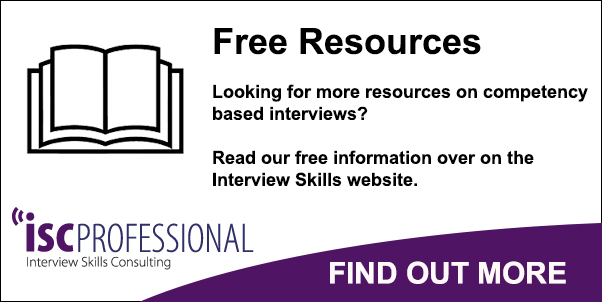Competency-Based Interviews: The Main Differences to Normal Interviews
So you’ve just received great news – your job application has been successful and you have secured that all important interview. The only issue is that the interview is a competency-based interview and you aren’t sure what that means, and what the main differences are.
There’s no need to worry though, as we have the information you need to conquer your next competency-based interview.
What is a competency based interview?
The competency based interview is designed to help an employer assess if you have the skills (competencies) to match the job requirements.
A ‘normal’ or unstructured interview tends to deal in generalities using open questions with the employer seeking a general impression of the candidate.
The competency based interview is entirely focused on the specifics of what you are able to do in relation to the criteria for this particular job. The competency based interview is a structured process, with each skill or competency being systematically considered and tested.

What information do I need to get started?
The first thing you need to do is identify the competencies which will be tested at interview. These can usually be found in the job or person specification and/or on the application form.
If details of the competencies have not already been provided then ask for them in advance of the interview. You need this information in order to effectively plan your approach and prepare your examples.
Next you need to anticipate the types of questions which could be asked on each competency. Although each employer will have their own specific requirements, competencies which frequently come up include leadership, team-working, communication skills and conflict management. Common opening questions on these topics include:
- Tell me about a time when you lead a team/project/group?
- Please provide an example of when you have successfully worked as part of a team?
- Explain in detail an experience where you had to communicate detailed technical information to non-specialist colleagues?
- Describe a situation where you effectively dealt with conflict within your team?
There are lots of online resources which provide more examples of competencies and the types of questions which often come up.
How do I prepare for a competency based interview?
Once you know which competencies will be tested and have identified the types of questions which are likely to be asked, it’s time to reflect on your experiences to date and match these to each competency.
Think primarily about situations you have dealt with in work but also feel free to draw on your participation of clubs and societies.
The next stage is to use this raw material to create sample answers to the sample questions. This part needs a definite structure in order to ensure you get your point across and tick all the boxes which the interviewer is looking for.
A popular method of doing this is the STAR approach. This involves clearly setting out the
-(S)ituation– giving some context to the project/task.
-(T)ask- describing what needed to be done.
-(A)ction– providing details of what your personal contribution was to the task and what skills you used.
-(R) esult– outlining the outcomes. Include details of what changes happened, what improvements were achieved and any positive financial impact.
Interviewers will be looking for clear examples which provide sufficient evidence to demonstrate your proficiency in each competency they require. Adopting this systematic approach to answering their questions helps you exhibit each competency and helps them allocate interview marks to it.
Following this advice will help propel you towards successfully demonstrating your competencies. Read more about competency-based interviews over in our free information section.

